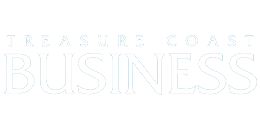Tips for Managing Cash Flow

What’s the No. 1 reason small businesses fail? Cash flow, not lack of profits.
About 80% of small business failures happen because of poor cash-flow
management.
Mike Bernard, a consultant at the Florida SBDC at Indian River State College and a financial specialist, says he hears it all the time from his clients: “My business made a profit last year, but I don’t have any money to pay my bills.” Bernard notes that many of his clients have sizable sums of their operating cash tied up in Accounts Receivable or Inventory.
Remember, cash flow is not the same as Profit. Are you profitable but still struggling month to month in managing cash flow? You are not alone. Managing when money enters and exits a company is crucial to
business survival and growth.
Bernard, a Financial Analyst, stated, “A lot of businesses can sell their products, but they don’t understand their working capital cycle. A company, as we teach in our Profit Mastery seminars, can sell itself right out of business.” As businesses continue to grow, they must control their cash flow. For example, business owners get excited when they get a government contract. However, they need to understand the specific terms attached, like not being paid for 60 to 90 days. Meanwhile, you have to buy inventory and pay your fixed overhead
expenses. Can you sustain that? If you cannot and do not get additional capital, sometimes it is better not to pursue the contract. What else can you do so your business does not become a statistic? The first and perhaps most important is to set aside time in your week to think about your strategy and try to understand your financial information. Small businesses are so much into day-to-day operations that they do not think enough about the cash flow cycle. You have to be constantly vigilant about looking
for ways to improve your cash flow. It is the lifeblood of your business.
“A business owner needs to regularly review and analyze the business’ financial statements and working capital cycle,” said Bernard. “Is this the best you can do, or are there additional strategies and tactics to generate and improve cash flow?” Bernard also notes, a thorough review of the business’ payables and receivables can uncover opportunities to shorten the operating cycle.
A Few More Ideas:
- Every industry has its own set of Metrics. The FSBDC at IRSC has a database of
these metrics to help you analyze how you are doing compared to your industry.
- Make it a daily routine to review the business’ actual daily cash balance.
- As you recognize potential cash flow problems, create strategies that correct the
problems.
- Accounts Receivable: Consider granting discounts for prompt payment. Such as 2 – 10 Net
30 (2% discount if paid in 10 days, or full payment in 30 days). Also, ensure that your terms are not too long and that your receivables are quality accounts to keep delinquencies down.
- Accounts Payable: Be careful on the payables side, also. Buying inventory that does not move becomes stale and then obsolete. In addition, this time, you want terms on your side – as long as possible to pay and negotiate
volume discounts.
- Inventory: Compare inventory turn rate to the industry average (Metrics) to see how you compare. Remember, inventory that does not turn fast enough is money left on the shelf that could be in your pocket. Have a sale for slow-moving inventories or donate it to a non-profit for a tax write-off, and negotiate just-in-time contracts so that you can
keep as little inventory on hand as possible.
- To increase cash flow from sales growth, open newer, less costly distribution
channels, increase prices where you can and introduce new technology to help
reduce sales costs.
- Spend and collect with care. Watch overhead costs, always negotiate on price.
Give credit very carefully but collect very aggressively.
This article is provided by the Florida SBDC at IRSC, the small business development Center within Indian River State College’s School of Business. The center’s team of business experts works one-on-one with hundreds of entrepreneurs and business owners each year by providing confidential, no-cost consulting. The center’s mission is to help treasure Coast businesses grow and succeed.
